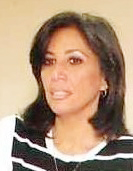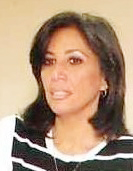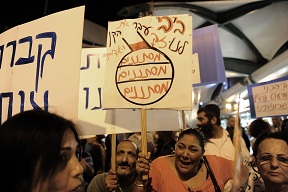
A few weeks ago I was invited to a UNDP-sponsored forum on “women’s participation in post-revolutionary parliamentary elections.”
Policy makers, legislators and opinion leaders from Egypt, Libya and Tunisia had gathered to share their experiences in legislative elections held following the mass uprisings in their countries and discuss ways of ensuring increased participation of women in political decision making.
In all three countries, women played a significant role in the mass protests that toppled autocratic regimes but the “Arab Spring” has brought neither the freedom nor the political gains that these women had aspired for. Instead, the women today find themselves at risk of losing some of the rights they gained under the former regimes.
“After playing a key role in the protest movements, the women were expected to retreat from public life and were sidelined,” lamented Maya Morsy, UN Women Egypt’s country coordinator.
In Egypt, not only were women shut out of the decision making process, but those who participated in protests demanding a faster pace of reforms during the transitional period were also subjected to (what appeared to be systemic) sexual assault and violence.
Yet they refused to be pushed back into the shadows and women turned out in large numbers in the first free parliamentary election post-revolution, outnumbering men.
The result of the vote however was a shocking disappointment for Egypt’s women.
“Only nine women were voted in because the electoral system in Egypt is not women-friendly; it does not aim to integrate women,” said Nehad Abu Qomsan, chairperson of the Egyptian Center for Women’s Rights.
Participants attributed the low representation of women in the now-dissolved parliament to their having been placed at the bottom of electoral lists and to the abolishment of a Mubarak-era quota reserving 64 seats for women.
“Political parties did not include enough women on their electoral lists,” explained Dr Hoda Badran, head of the National Women’s Union.
“Our electoral law stipulated that the lists must include at least one woman but did not specify where the women should be placed on the list. Most parties put women at the bottom of their lists which reduced their chances of being elected,” she added.
Unlike Egyptian women, women in Tunisia and Libya fared better, thanks to their female-friendly electoral systems. Ahead of the October 2011 Constituent Assembly elections in Tunisia, the transitional authorities there passed a law stipulating that candidates lists must include alternating male and female candidates.
This gave women equal opportunity to participate in drafting the constitution; a move that experts said would ensure the safeguarding of women’s rights.
“Not only do women make up 27% of Tunisia’s National Constituent Assembly but 59 women also won seats in the 217 seat parliament,” noted Kalthoum Badr el Deen , a member of the Tunisian Constituent Assembly.
The number of women lawmakers increased after several male MPs left parliament to take up positions in the government and were replaced by women.
Unlike Egypt and Tunisia where Islamist parties won the majority of the votes, Libya’s first post Gaddafi parliamentary election brought an assembly composed largely of an alliance of liberal parties. “This was a great victory for Libya but the even bigger victory was the inclusion of women,” said Zahia Farrag Attia, a Libyan candidate who had run as an independent in the legislative election in her country.
Libyan women won 33 seats in the parliamentary election; 32 of them through party lists and just one independent (out of 84 who ran as independents). “Women who ran as party candidates benefitted from the support and resources of their parties. They had a higher chance of winning because women were included in party lists in alternating slots, both horizontally and vertically,” Attia said.
She and other participants said women were held back by the patriarchal, conservative culture in their societies where women are often treated as “second class citizens”.
“It is not just men that are not supportive of women, women voters too are not supportive of women candidates; regardless of their level of education,” complained Mai Shalkamy who ran as an independent in Egypt’s parliamentary election but did not win.
Experts said patriarchal societies need to introduce special measures to ensure more adequate representation of women but what’s more important, they said, is the choice of electoral system.
“Tunisia had a proportional representation system which allowed more women to get elected. Egypt did not introduce any special measures and so the results were disastrous for women. Majoritarian systems are not as women-friendly as proportional representation systems,” said Carlos Valenzuela, UNDP’s senior electoral expert for the region.
Meanwhile amendments to the electoral law (proposed by a group of politicians and legislative experts earlier this week) have been sent to the Shura Council for final discussion and approval ahead of parliamentary elections slated for late February.
The draft stipulates that party-based lists must include at least one woman candidate who must be placed in the top half of the list. The poll will be held under a mixed system in which two-thirds of the seats are to be contested by party candidates while a third of them will go to independents.
Politicians have criticised the amendments saying they are superficial and fall short of the aspirations of political forces. The critics complain the changes do not guarantee judicial supervision of the elections and are designed to marginalise the opposition. They also do not guarantee equal representation for Coptic Christians who make up an estimated 12% of the population, they say.
Pope Tawadros II had earlier called for the allocation of constituencies for Christians to allow them greater representation in parliament. Amr Moussa, former presidential candidate and member of the opposition National Salvation Front (NSF), said the NSF proposals to criminalise the use of places of worship in electoral campaigns and set a financial ceiling for campaigners had been ignored. He added that the NSF had requested the adoption of an open-list proportional representation system instead of the current mixed system stipulated by the draft law.
“It is crucial that women are allowed access to a reasonable percentage of seats,” insisted Hoda Badran, adding that members of her NGO would do all they can to support women in the upcoming poll; especially independent candidates. “While we do not support the candidates financially, we organise gatherings to allow voters to meet the candidates, print leaflets and advise women to vote for the women candidates. We also urge political parties to put more women on their lists.”
She and the other participants agreed that there can be no progress if women, who make up half of society, are left out of the political process.
“Supporting women in decision-making results in social policies that respond to the needs of women and their families. It also helps change society’s attitudes towards women,” said Maya Morsy.”Change begins with us.”




